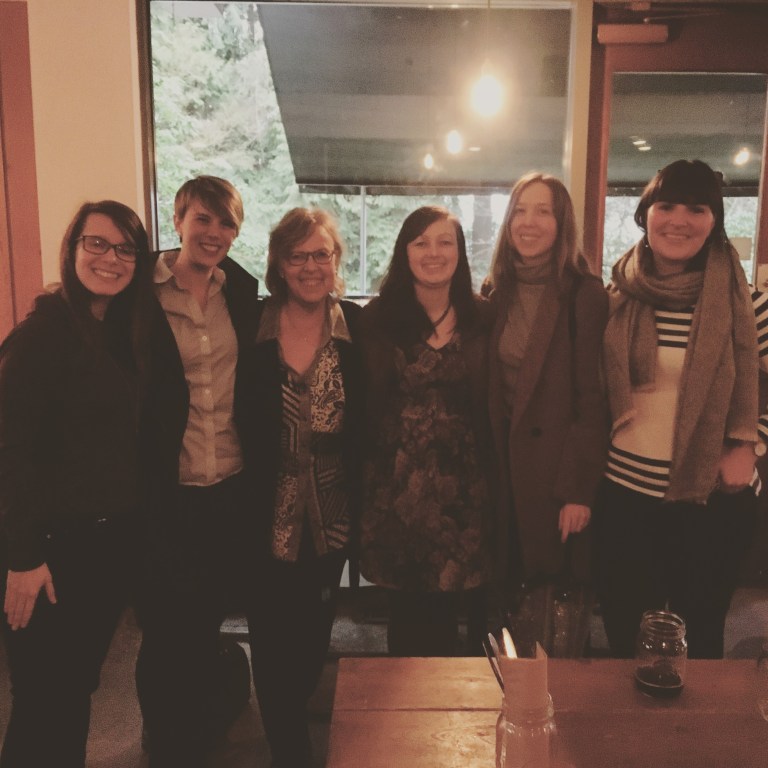Each year, I’ve reflected on the wisdom I’ve collected from people and places I’ve been. As each year arrives more quickly, here again, I reflect on another lap around the sun.
This year, I’ve been incredibly lucky to have a birthday week filled with strong, powerful, female environmental leaders. It’s as if the universe knew exactly what I would love for my birthday and aligned the stars (and the talks) to gift it to me. As a set out on my clean energy education path, it’s a pretty well thought out present. Thanks, Universe (and UBC)!
In my birthday week, I was fortunate enough to hear three such leaders speak.
Elizabeth May
On Tuesday, I enjoyed two separate talks at UBC featuring Elizabeth May. In the afternoon, she reflected on her life in politics followed by an evening talk on current environmental legislation.
Listening to Elizabeth speak of her life and environmental work is like having a crash course in the global sustainability movement. She pulls lessons from the major global conventions, weaves Canadian history and politics through rounds of legislation, and quotes leaders of every political stripe and nationality.

With the raft of environmental issues in the world today and the challenges ahead to meet a goal of no more than 1.5C increase in global average temperature, she reminded us that “It’s hard work to be hopeful.” Yet, she still is. She says she’s genetically wired for optimism, but if anyone could see the dire straights we’re in, it would be Elizabeth May. Yet, she finds hope.
She draws inspiration from the nearly incredible World War II story of Dunkirk. She asked, “What’s the equivalent of every tiny fishing boat to rescue the entire British army?” Rescuing 300,000 men by fishing boats seems impossible. But it was done. Now, it’s our turn.
In order to meet the Paris Agreement at 1.5C, she simplified the task into priorities:
-
“Get fossil fuels out of electricity generation everywhere.
-
Get rid of internal combustion engines.”
It’s simple and incredibly complex. But so is rescuing the entire British Army.

In the evening, she wove a rollercoaster of a story of Canada’s environmental assessment process. From attending the first ever environmental assessment panel in Wreck Cove, Cape Breton(!) to today’s proposed legislation (Bill C-69). What should be an improvement on the gutted, broken assessment process from the Harper era doesn’t even get back to where the process was in the 90’s. Elizabeth May makes a powerful call for action, which you should read here.
Catherine McKenna
Catherine McKenna spoke at the GLOBE Forum with a rousing speech to an audience focused on sustainable business. I disagree with some of McKenna’s moves around pipelines and the economic-environment balance, there was something special about hearing her speak. She is the first Minister with climate change in her title, holds a cabinet position from the beginning of her time in office, and is a strong, well-educated, articulate leader.

Her talk opened and closed with insights I thought were particularly thoughtful:
After recognizing the unceded territory of the Musqueam, Squamish and Tsleil-Waututh First Nations:
“Reconciliation is hard, but we need to be part of it.”
Recognizing the broad and sometimes unexpected parties who do and need to come together to fight climate change and grow a sustainable future:
“Unusual suspects working together is the only way to get things done.”
Annette Verschuren, O.C.
Annette Verschuren came a long way from a Cape Breton dairy farm. She’s lead major corporations and foundations and is chancellor of Cape Breton University. She spoke at the Walrus Talks Energy, offering a story of her eureka moment while on her bucket list trip:
“We found a way to store food. We found a way to store water. But we hadn’t found a way to store energy.”

Now, she’s founded an energy storage company, NRstor, to meet this need. And has a simple tactic for getting things done:
“I’m a believer in mediocre strategy and great execution.”
Wisdom in Pairs
Hearing thoughtful, clever, experienced women share their lessons and their thoughts on how we need to tackle today’s challenges was the best gift I could receive.

The messages are potent, but even moreso coming from women. Women who have carved out space and created change in this messy world. It’s a reminder and an inspiration that I and other women can (and will!) follow suit.






